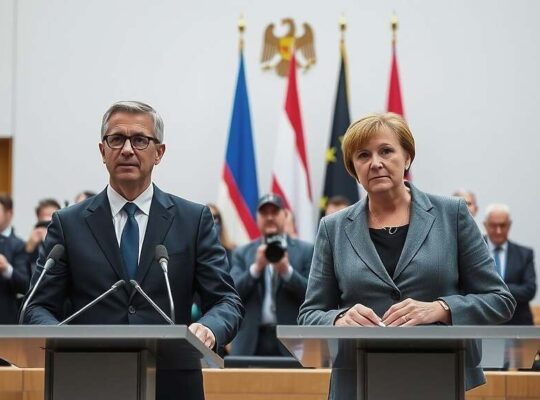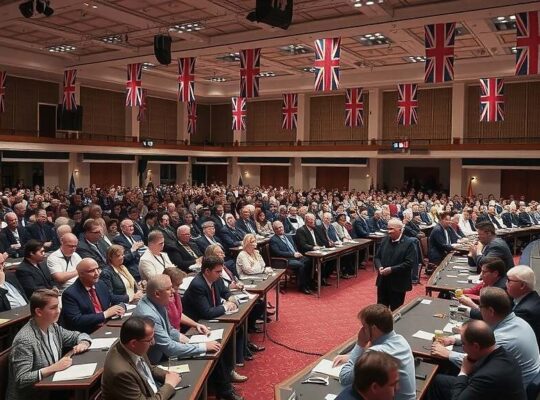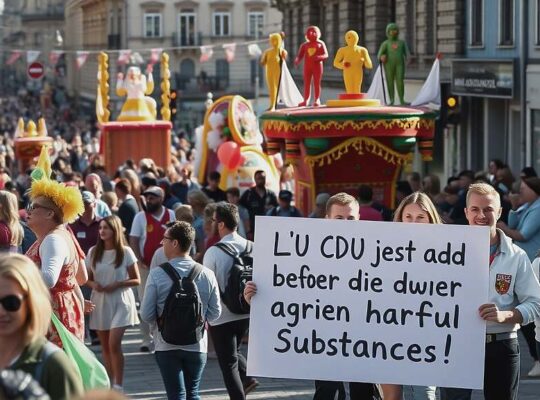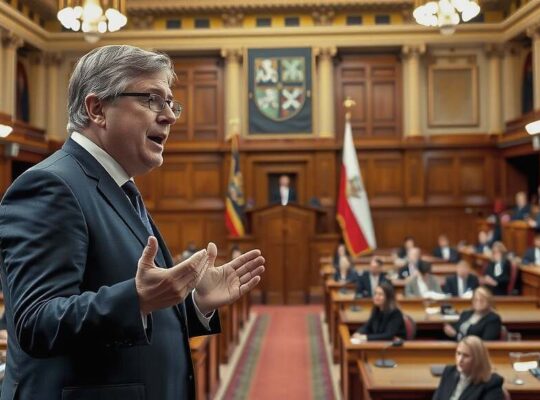A senior figure within the Christian Democratic Union (CDU), Sepp Müller, has definitively ruled out any potential government participation with the Alternative for Germany (AfD), despite the party’s significant gains in recent opinion polls. Müller, who represents the state of Saxony-Anhalt, stated in an interview with the Handelsblatt that the AfD’s positions and political conduct remain “in fundamental opposition to the values and goals of our CDU” making collaboration impossible.
His comments follow remarks by Tübingen’s non-affiliated Mayor Boris Palmer, who, also in the Handelsblatt, suggested that a government partnership with the AfD might become “possibly opportune” if the party were to become the leading force in certain regions of eastern Germany. Palmer proposed potential safeguards, such as restricting the party’s access to key constitutional ministries, as a means of containing the party’s influence. He framed this approach as a potential “last democratic alternative” aimed at either discrediting the AfD or, alternatively, “domesticating” it into a more mainstream, conservative-bourgeois party.
Müller rejected Palmer’s proposal, arguing that it is not the role of a major political party to passively wait for another party to change or be transformed. He emphasized the CDU’s focus on developing a plan to establish Saxony-Anhalt as a “regional economic engine” extending beyond Germany’s borders.
Political scientist Oliver Lembcke from Ruhr University Bochum acknowledged that Palmer’s suggestion touches upon a crucial democratic principle, namely the possibility of shifts in power. However, Lembcke cautioned that the cost of a coalition with the AfD would be considerable. A core argument against the AfD across the political spectrum has been its perceived hostility towards constitutional principles. He warned that any strategic shift would significantly damage credibility, appearing opportunistic or desperate, particularly given the lack of trust inherent in such a partnership.












